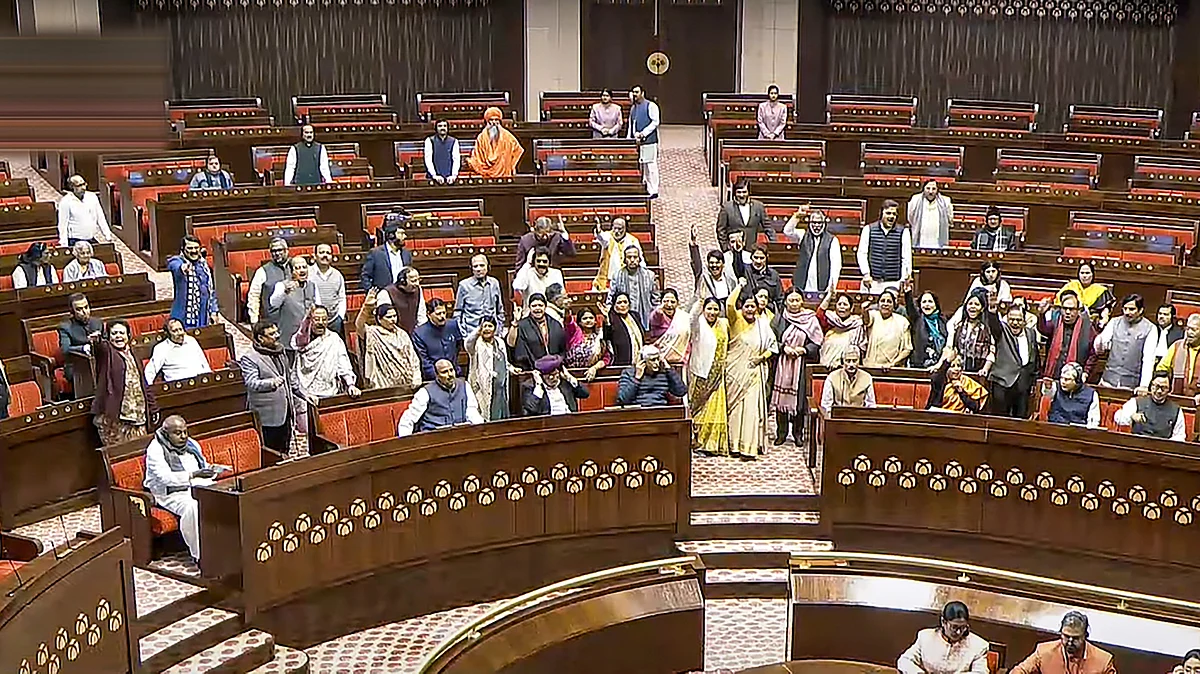- Courses
- GS Full Course 1 Year
- GS Full Course 2 Year
- GS Full Course 3 Year
- GS Full Course Till Selection
- Online Program
- GS Recorded Course
- NCERT (Recorded 500+ Hours)
- Polity Recorded Course
- Geography Recorded Course
- Economy Recorded Course
- AMAC Recorded Course
- Modern India, Post Independence & World History
- Environment Recoded Course
- Governance Recoded Course
- Science & Tech. Recoded Course
- International Relations and Internal Security Recorded Course
- Disaster Management Module Course
- Ethics Recoded Course
- Essay Recoded Course
- Current Affairs Recoded Course
- CSAT
- 5 LAYERED ARJUNA Mentorship
- Public Administration Optional
- ABOUT US
- OUR TOPPERS
- TEST SERIES
- FREE STUDY MATERIAL
- VIDEOS
- CONTACT US
Declining Functioning of State Legislative Assemblies – PRS Legislative Research 2024
Declining Functioning of State Legislative Assemblies – PRS Legislative Research 2024

- Recently, PRS Legislative Research published a report Annual Review of State Laws 2024.
- It reveals that state legislative assemblies in India have shown a consistent decline in sittings, deliberation quality, and institutional capacity, raising critical concerns about the health of federal legislative democracy.
- This report is Based on data from 28 states and 3 UTs with legislatures (Delhi, Puducherry, J&K)
Key Highlights of Report
What is National Average of Assembly Sitting Days:
- 2017: 28 days
- 2020 (COVID): 16 days
- 2024: 20 days
What are state wise Assembly Sitting Days ?
- Article 174 says that State legislature must meet at least once every 6 months
- But 11 states met this requirement through very short sessions (1–2 days), raising concerns about legislative accountability
|
State |
Sittings (Days) |
|
|
Odisha |
42 - Highest |
|
|
Kerala |
38 - High productivity |
|
|
West Bengal |
36 |
|
|
Manipur |
14 - Under President’s Rule since Feb 2025 |
|
|
Nagaland |
6 Lowest |
|
|
Sikkim |
8 |
|
|
Arunachal Pradesh, Punjab, Uttarakhand |
10 each |
|
|
Uttar Pradesh, Madhya Pradesh |
16 each |
|
|
Rajasthan |
13 |
|
Election-Year Trends:
- In 7 states with elections in 2024:
-
- Arunachal Pradesh, Andhra Pradesh, Odisha : Increased sitting days compared to 2023.
- Jharkhand and Maharashtra : Reduced sitting days.
What is the Legislative Productivity: Number of Bills Passed
- National Average: States passed an average of 17 Bills in 2024.
|
Top Performer States |
Bills Passed |
|
Karnataka |
49 |
|
Tamil Nadu |
45 |
|
Himachal Pradesh, Maharashtra |
32 each |
|
Low Activity States |
Bills Passed |
|
Delhi |
1 |
|
Rajasthan |
2 |
|
Odisha, Puducherry |
3 each |
How much Time Taken to Pass Bills:
- 51% of all Bills were passed within 1 day (up from 44% in 2023).
- 8 states passed all Bills same day:
-
- Bihar, Delhi, Jharkhand, Mizoram, Puducherry, Punjab, Tamil Nadu, West Bengal
- 16 states passed all Bills within 5 days.
Details about Budget Sessions and Scrutiny :
- Average Duration:
-
- 7 days across 28 states.
- Extended Discussions:
-
- Kerala, Goa: 18 days
- Odisha: 16 days
- Gujarat: 14 days
- Rajasthan: 13 days
- Short Discussions:
-
- MP, Punjab, Telangana: Only 2 days
- Lack of Detailed Scrutiny:
Role of Governor: Delays in Assent
- In 2024, across states, there was wide variation in the time taken by Governors to give assent to Bills.
- Of the Bills passed in 2024, 18% got assent after more than 3 months.
- States where a high proportion of Bills got assent after more than 3 months include Himachal Pradesh (72% of Bills passed), Sikkim (56%) and West Bengal (38%).
- Across states, 60% of Bills received assent from the Governor within 1 month.
- In 5 states (Arunachal Pradesh, Bihar, Delhi, Mizoram and Rajasthan), all Bills received assent within a month.
Governor’s Constitutional Powers:
|
Article 200 |
Under Article 200 of the Constitution, the Governor has 3 options when dealing with a bill passed by the state legislature:
|
Supreme Court Interventions:
- There were too many delays while giving assent to the bills.
- So The Supreme Court used Article 142 of the Constitution, which gives the Court the power to make any order necessary to do complete justice in a case.
- Then, Supreme Court prescribed a timeline for Governors’ assent.
- Just before this, The Tamil Nadu government had approached the Supreme Court regarding 12 Bills, pending with the Governor, which were passed by the legislature between 2020 and 2023.
- After notice from the Court, in 2023, the Governor returned 10 of these Bills to the Assembly.
- After the legislature passed them again, the Governor reserved the Bills for the President’s opinion.
- The Court held that Article 200 does not allow the Governor to sit on Bills and exercise pocket veto over them.
- The judgement prescribed timelines for the Governor to make decisions regarding Bills.
- On advice of the Council of Ministers, the Governor may take up to a month to refer a Bill to the President.
- Against the advice of the Council of Ministers, the Governor may take up to 3 months to return a Bill to the legislature or refer it to the President.
- The Governor can only reserve a bill for the President the first time it is presented, not after the legislature has reconsidered it.
- However, the Governor has to give assent within a month to a Bill that has been reconsidered and passed again by the legislature.
- The judgement also held that the 10 Bills pending in Tamil Nadu would be deemed to be assented.
Ordinance Promulgation
- Under Article 213 of the Constitution, the Governor of a state may issue Ordinances in extraordinary circumstances.
- These Ordinances have the effect of a law.
- However, these laws are temporary, and must be approved by the legislature within 6 weeks of its next meeting.
- In 2024, 20 states issued 100 Ordinances in total.
- All the Ordinances were later replaced by Bills.
|
Top Issuers: State |
Ordinances |
|
Uttar Pradesh |
22 |
|
Maharashtra |
18 |
|
Haryana |
10 |
|
Karnataka |
10 |
Major Legislative Reforms Across States
- The 7th Schedule of the Constitution gives states power to legislate on matters such as: public order, local governance, agriculture and health.
- About half of all Bills passed relate to 3 broad areas: education, finance and local governance.
- Several states also passed Bills on land and property rights, criminal laws and government administration.
- Local Governance & Urban Development
-
- Haryana : Hisar Metropolitan Development Authority
- UP : Capital Region Development Authority
- Karnataka : Greater Bengaluru Governance Act, 2025 creates multiple city corporations.
- Environment & Water
-
- Goa : Amended Groundwater Regulation Act:
-
-
- First offence: ₹5,000
- Repeat offence: ₹10,000
- Pollution via untreated water: ₹10 lakh fine
-
- Healthcare Protection
-
- Karnataka : Penalizes abuse of medical professionals:
-
-
- Up to 3 months imprisonment or ₹10,000 fine
- Harsher penalties for physical violence
-
-
- Jharkhand : Medicare Service Persons Protection Bill (lapsed after Assembly dissolution)
- Education & Universities
-
- Kerala, Tamil Nadu, West Bengal : Replaced Governor as ex-officio Chancellor with state-appointed Chancellors.
- Haryana, UP, Karnataka : Established new universities and regulatory frameworks.
- Law and Order & Social Issues
-
- Bihar Control of Crimes Bill, 2024
-
-
- Empowers district magistrates to remove anti-social elements.
- Validity: 6 months (extendable up to 2 years).
-
-
- Tamil Nadu Prohibition(Amendment) Bill, 2024
-
-
- Continued ban on liquor sales, with focus on implementation and enforcement.
-
- Contingency Funds and Financial Management
Contingency Fund is meant to meet unforeseen expenditures.
|
State |
Contingency Fund |
|
Manipur |
In 2024, Manipur enacted a law to establish a Contingency Fund for the state, with an amount of Rs 500 crore. |
|
Meghalaya |
Meghalaya increased its Contingency Fund corpus temporarily from Rs 505 crore to Rs 1,505 crore till March 31, 2024 |
|
Tamil Nadu |
Tamil Nadu increased it from Rs 150 crore to Rs 500 crore. |
Administrative Reforms and Vacant Posts : Deputy Speaker Vacancies:
- As of 2025, 8 states have no Deputy Speaker
- Jharkhand: Jharkhand hasn’t appointed one for 20+ years
- Lok Sabha: Deputy Speaker post vacant since 2019
- But Article 178 says that Every Legislative Assembly of a State shall, as soon as may be, choose 2 members of the Assembly to be respectively Speaker and Deputy Speakers thereof and, so often as the office of Speaker or Deputy Speaker becomes vacant, the Assembly shall choose another member to be Speaker or Deputy Speaker, as the case may be.
- Long vacancies affect procedural efficiency and democratic functioning.
|
State |
Years without Deputy Speaker |
|
Chhattisgarh |
1.4 |
|
Jammu & Kashmir |
0.5 |
|
Jharkhand |
20.2 |
|
MP |
5.2 |
|
Rajasthan |
6.3 |
|
Telangana |
1.4 |
|
Uttarakhand |
3.3 |
|
UP |
3.2 |




